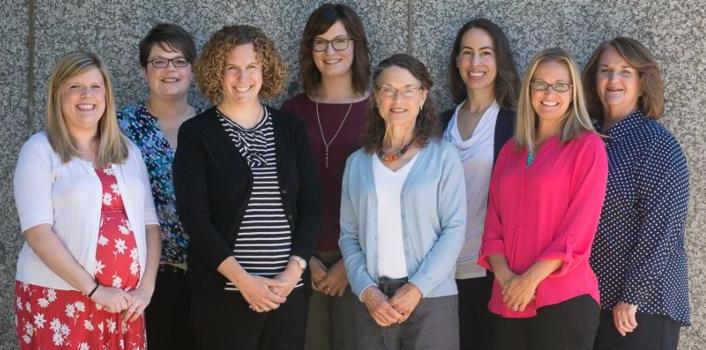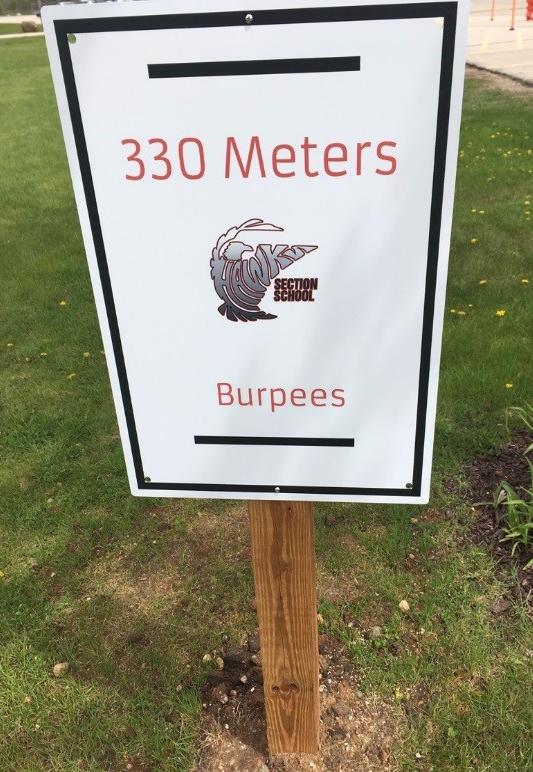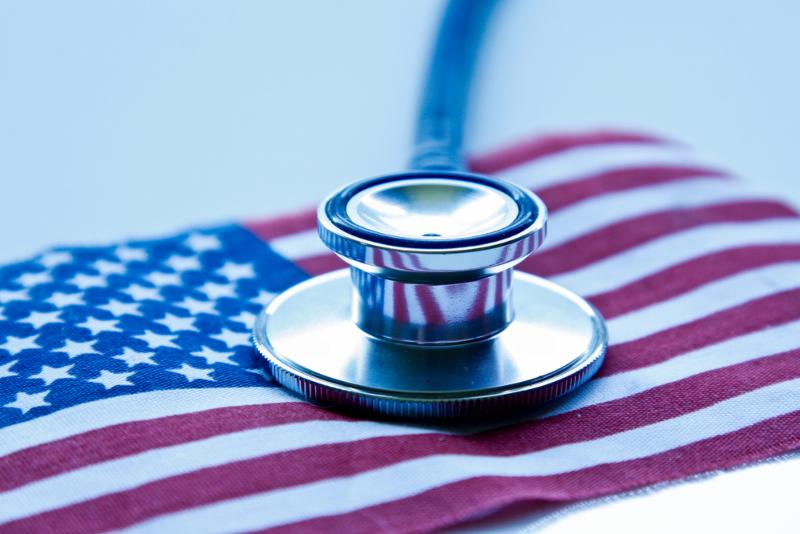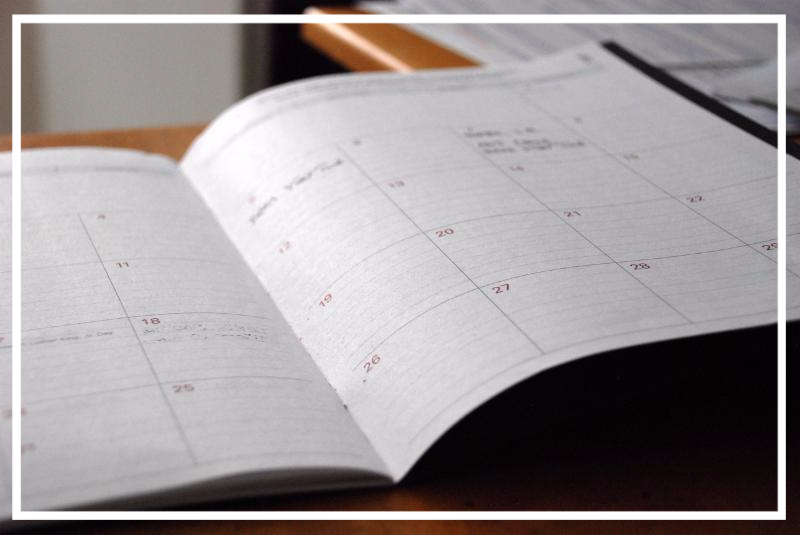|
|
|
|
|
|
| Greetings from the CCC Program! |
Dear WI Cancer Council members,
Our staff has spent the past few weeks glued to the rapidly changing news about health care reform. While it's tempting to concentrate on what's happening in Washington --
and how that will affect cancer control communities across the country -
-
it's important not to lose sight of the gains happening closer to home.
In this issue of our monthly newsletter, we bring you stories that celebrate innovation, progress, and successes both large and small
--
and we invite you to share stories of your own.
Thank you for being a crucial part of cancer control in Wisconsin.
Your WI CCC Program Team
|
|
|
|
|
Rural Cancer Disparities: What We're Doing
|
Innovative efforts are reducing the cancer burden in rural Wisconsin
 Across the nation, the gap between rural and urban cancer death rates is growing, according to a
new report
released last month by the Centers for Disease Control and Prevention. Across the nation, the gap between rural and urban cancer death rates is growing, according to a
new report
released last month by the Centers for Disease Control and Prevention.
The report gives researchers and advocates a first-of-its-kind comprehensive comparison of cancer death rates in rural and urban America. Key findings include:
- While rural areas in general experienced a lower incidence of cancer, they had higher cancer death rates than in urban areas.
- Rural areas had a higher incidence of -- and deaths from -- several cancers related to tobacco use, as well as other cancers that can be prevented via screening.
These gap-reduction strategies are all priorities of the
WI CCC Plan 2015-2020
and reflect innovative work already happening in rural areas of Wisconsin with support from the WI Cancer Council and the WI CCC Program.
For example:
- In 2016, all five projects funded by the CCC Implementation Grants Program helped to reduce the cancer burden in rural communities -- reflecting the need that exists in rural areas, as well as the potential for innovation. For example, the Ho-Chunk Nation Department of Health received funds to increase access to cancer screenings and preventative care for community members. And cancer patients in Clark County no longer will need to travel outside the county to receive oncology services, as Memorial Medical Center is using its grant funding to train staff in the standards of care for cancer treatments.
-
 This October, the Wisconsin HPV Vaccine Summits will be held in two locations to make the information as accessible as possible across the state and will feature speakers from rural organizations to highlight successful efforts. In addition, organizers have planned an agenda relevant to both rural and urban audiences and are recruiting rural public health and health system representatives to attend. This October, the Wisconsin HPV Vaccine Summits will be held in two locations to make the information as accessible as possible across the state and will feature speakers from rural organizations to highlight successful efforts. In addition, organizers have planned an agenda relevant to both rural and urban audiences and are recruiting rural public health and health system representatives to attend.
"While rural areas may be less populated, the people living in rural areas are not any less important," said Sarah Kerch, WI CCC Program partnership coordinator. "Rural Wisconsinites experience significant barriers in preventing, diagnosing, and treating cancer. We have an ethical obligation to reduce the burden of cancer for every Wisconsinite, regardless of their location."
Are you working to reduce rural cancer disparities? Tell us so we can share your successes in a future issue of the newsletter.
How this connects to the WI CCC Plan:
|
|
Program Staff to Present at CDC Conference
|
Event will draw cancer control leaders from across the country

"Wisc
onsin has many wonderful things happening in comprehensive cancer control, and the National Cancer Conference is a place where we can share our experiences and lessons learned with our peer states," said Amy Conlon, program director.
The presentations will help to share Wisconsin's innovative work with a national audience:
Sarah Kerch, partnership coordinator, will present on the development of the WI Cancer Council's
online member directory
, in "What's In It For Me? Utilizing Technology to Enhance the WI Cancer Council's Value-Added Collaboration."
Michelle Moreau, community outreach specialist, will share lessons learned in prevention efforts with hospital systems, in "Community of Practice: Hospitals Working Together to Create Healthier Environment."
Sarah Mroz, outreach program coordinator, will discuss health care disparities in "Addressing Breast Cancer Mortality Disparities in Milwaukee."
In addition, Program staff will present two posters, "Using Survivorship Data to Inform Partnership Priorities," and "Wisconsin's HPV Vaccine Environmental Scan."
Other
featured speakers
will include
Atul Gawande
, Harvard Medical School professor and author of the acclaimed Being Mortal;
Lucile Adams-Campbell
, associate director for minority health and health disparities research at Georgetown University Medical Center; and
Joan Lunden
, award-winning journalist and women's health advocate.
How this connects to the WI CCC Plan:
|
|
Healthy Schools: A Cancer Prevention Strategy
|
Schools in southeast WI are invited to participate
The effort is a partnership between the WI CCC Program and Cooperative Education Service Agency (CESA) 1, which provides direct support to schools, in addition to multiple opportunities for learning and networking with peers throughout the year.
The program's second year wrapped up "with successes experienced in all districts," said Michelle Moreau, WI CCC Program community outreach specialist. All participants completing the year-end evaluation reported that the project was worth the time and effort.
 For example, one school wanted to increase opportunities for physical activity for students, staff, and the community. They created a 400-meter track around their recess fields, including mileage signs that suggested fun exercises along the route. To encourage staff to use it, the school organized a staff wellness challenge called Destination Fitness, during which staff kept track of their steps and competed for prizes. More than half of the staff participated. For example, one school wanted to increase opportunities for physical activity for students, staff, and the community. They created a 400-meter track around their recess fields, including mileage signs that suggested fun exercises along the route. To encourage staff to use it, the school organized a staff wellness challenge called Destination Fitness, during which staff kept track of their steps and competed for prizes. More than half of the staff participated.
The ACS grant also supports Wisconsin's Annual Healthier Schools Workshop. This year marks the 5th year of the workshop, scheduled for November 16, 2017, in Stevens Point. The workshop is open to any district team in Wisconsin interested in improving their school health environment. Registration will open in late August and will be announced on the
Wisconsin School Wellness website
.
The final year of the Learning Collaborative begins this month. Recruitment for school districts in southeast Wisconsin is continuing in order to serve as many schools as possible. School district representatives interested in learning more should contact Michelle Moreau.
How this connects to the WI CCC Plan:
|
|
Senate ACA Repeal Effort Fails
|
What does it mean for the cancer community?
 The Senate's effort to repeal and replace the Affordable Care Act (ACA) hit another roadblock last week, as
three Republican Senators
joined all of the Senate Democrats in voting down the Health Care Freedom Act, referred to as a "skinny repeal." The Senate's effort to repeal and replace the Affordable Care Act (ACA) hit another roadblock last week, as
three Republican Senators
joined all of the Senate Democrats in voting down the Health Care Freedom Act, referred to as a "skinny repeal."
The latest bill -- which was proposed only after a revised version of the
Better Care Reconciliation Act (BCRA)
and another partial repeal bill failed -- included provisions from prior bills that would have hampered cancer prevention and control efforts, such as a repeal of the Prevention and Public Health Fund and a stipulation prohibiting Medicaid patients from receiving cancer screenings and other health care services at Planned Parenthood and similar clinics.
The next steps for health care reform remain uncertain. Republican Senators may still consider a plan that would retain many of their previous bills' features and
potential impacts
, but would grant states greater flexibility through a block grant program. Additional groups in the House and Senate are pursuing potential bipartisan paths forward.
Finally, the Trump Administration is considering whether it will make the federal payments to insurers for cost-sharing reductions that ease deductibles and out-of-pocket costs for consumers. This decision
could have major impacts
for people who purchase insurance on the individual market, especially in states like Wisconsin where
a large percentage
of enrollees receive the reductions.
For now, however, the ACA remains the law of the land.
A
new report
from the American Cancer Society Cancer Action Network emphasizes how important this debate is to cancer survivors and their families. The report finds that although the protections in the ACA represent a "lifeline" for many people living with cancer, improvements still must be made, especially for cancer patients who need more support to guard against the
high costs of care
.
As the conversation continues, the WI CCC Program will work to provide updates on how potential changes might affect cancer prevention and control. This
comparison table
from the Kaiser Family Foundation offers details on all previous bills and will be updated as any future bills become available.
How this connects to the WI CCC Plan:
|
|
RESOURCES
|
For members of the WI Cancer Council
New Member Video: Your Role in Cancer Control
All-Member Webinar: State of the State of Cancer Control in Wisconsin
WI Cancer Council members are invited to tune in Oct. 4, 2017, from 1-2 p.m. for the "State of the State of Cancer Control in Wisconsin" webinar, hosted by WI CCC Program staff. The webinar will feature a snapshot of members' current work across the state, and an update on future priorities for the Council. Look for log-in details in next month's newsletter!
Member Spotlight: Call for Participants
Do you have an inspiring story to share about a success made possible thanks to your involvement in the WI Cancer Council? If so, we'd love to hear it.
We're looking for a new crop of Council members to feature in our
Member Spotlights
. How has your membership in the WI Cancer Council enhanced, inspired, or improved your work? If you have a success story to share with our team, let's talk!
|
|
ANNOUNCEMENTS
|
To share a member announcement in the newsletter, email the details to
Carrie Kilman.
Disparities Survey: Your Response Needed!
The AHW is committed to investing up to $20 million over the next eight years to reduce cancer disparities in Wisconsin, focusing on breast and lung cancer. The effort is focused on bringing together community, education, and research to identify solutions. Your contribution to the
survey
will help us understand what is happening in the state, including where innovative and interesting work is occurring.
When the survey is complete, we will share a summary of results through the WI Cancer Council mailing list. Please contact
Tobi Cawthra
with any questions about the survey or this initiative.
Deadline Reminder: Community Collaboration Grant
The
Community Collaboration Grant Program
offers training, technical assistance, and funding to address health inequities stemming from the social determinants of health, such as income, employment, education, and housing. This grant specifically supports organizations with limited access to resources and high health equity needs in their community. The maximum award for this grant is $300,000 over four years.
The Letter of Interest, which is the first step in the application process, is due Monday, August 14, 2017. Please contact Courtney Saxler at (608) 263-7870 or
[email protected]
with any questions.
ABCD has a new website!
ABCD: After Breast Cancer Diagnosis has a
brand-new website
: "ABCD's mission truly makes a difference, but don't take our word for it. Head over to our new website to read testimonials from Mentors and Healthcare providers on the genuine impact ABCD has on those affected by breast cancer - patients, families, and friends."
New Study: Weight Loss Intervention for African American Breast Cancer Survivors
Dr. Melinda Stolley, a member of the WI Cancer Council Steering Committee and associate director of Cancer Prevention and Control at the Medical College of Wisconsin,
recently published the results
of a study that examines weight loss interventions for African American breast cancer survivors. The results from the study, titled Moving Forward, were published in the
Journal of Clinical Oncology
.
|
|
EVENTS
|

Palliative Care 101
August, 31, 2017,
9 - 10 am
State Capitol, Room 412 East (back-up room: North Hearing Room, 2
nd
Floor)
Contact for more information:
Sara Sahli, American Cancer Society Cancer Action Network
Sept. 13, 2017, 7 am - 4 pm
Organized by the Wisconsin Department of Health Services
Heidel House Resort
Green Lake, WI 54941
Sept. 23, 2017, 8 am - 3 pm
Hyatt Regency Milwaukee
3
33 W. Kilbourn Ave.
Milwaukee, WI 53203
The State of the State of Cancer Control in Wisconsin
Oct. 4, 2017, 1 - 2 pm
A webinar for members of the WI Cancer Council
Log-in details coming in the September newsletter!
|
|
Together we will reduce the burden of cancer in Wisconsin.
|
|
|
The CCC Newsletter is a monthly publication of the Wisconsin Comprehensive Cancer Control Program and the Wisconsin Cancer Council. Its purpose is to share information on cancer prevention and control as it relates to our members in Wisconsin.
For more information or to suggest a story for an upcoming issue, please contact Carrie Kilman at [email protected].
|
|
| |
|